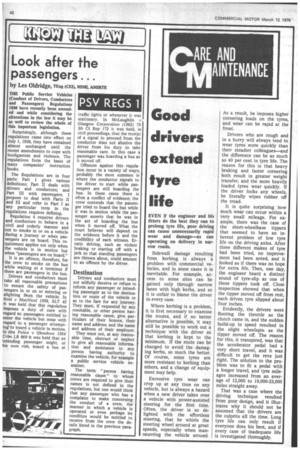PSV REGS 1
Page 68

If you've noticed an error in this article please click here to report it so we can fix it.
traffic lights or whenever it was stationary. In McLaughlin v Glasgow Corporation (1963) 79 Sh Ct Rep 172 it was held, in
civil proceedings, that the receipt of a signal to proceed from the conductor does not absolve the driver from his duty to take reasonable care. In this case a passenger was boarding a bus as it moved off.
Offences against this regulation occur in a variety of ways; probably the most common is where the conductor signals to the driver to start while passengers are still boarding the bus. In these cases there is often a conflict of evidence; the crew contends that the passenger tried to board the bus while it was in motion while the passenger asserts that he was in the act of boarding the bus when it moved off. What the court believes will depend on the evidence before it and the credibility of each witness. Erratic driving, such as violent braking or starting off with a jerk so that standing passengers are thrown about, could amount to an offence by the driver.
Destination
Drivers and conductors must not wilfully deceive or refuse to inform any passenger or intending passenger as to the destination or route of the vehicle or as to the fare for any journey. They must, if requested by any constable, or other person having reasonable cause, give particulars of their licence, their name and address and the name and address of their employer.
They must not, at any reasonable time, obstruct or neglect to give all reasonable information and assistance to any person having authority to examine the vehicle, for example a public service vehicle examiner.
The term "person having reasonable cause" to whom crews are required to give their names is not defined in the regulations, but one would think that any passenger who has a complaint to make concerning the conduct of a crew, the manner in which a vehicle is operated or even perhaps its condition would be entitled to receive from the crew the details listed in the previous paragraph.
















































































































